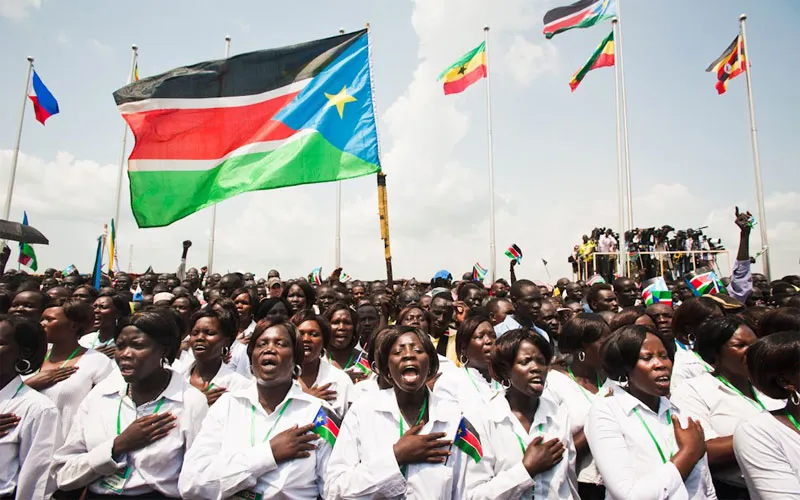Juba, 01 November, 2019 / 5:10 pm (ACI Africa).
Described as “one of the most ethnically and culturally diverse countries on the African continent” consisting well over 60 tribes with distinct and unique social structure systems, South Sudan, independent since July 2011, has had the opportunity of cultivating unity in the rich diversity of the various ethnic groupings.
However, since December 2013, the colorful richness of the country’s ethnic diversity has posed a threat to a collective sense of nationhood through a protracted civil war that has claimed thousands of lives, AP reported.
The multiethnic composition of the over 700-person choir preparing to animate the Liturgy of the conclusion of the centenary celebrations of Juba Archdiocese on November 1 seems to offer an inspiration toward national unity.
The choir is made up of South Sudanese living in their country’s capital and going beyond their individual tribes, languages, socio-economic status, among other distinguishing factors, some choir members have testified to ACI Africa correspondent in Juba.
“Singing in different languages is bringing harmony of people from different tribes into one body,” the Information Secretary for the Juba Archdiocese Centenary Celebrations, Damian Logali told ACI Africa Tuesday, October 29.








